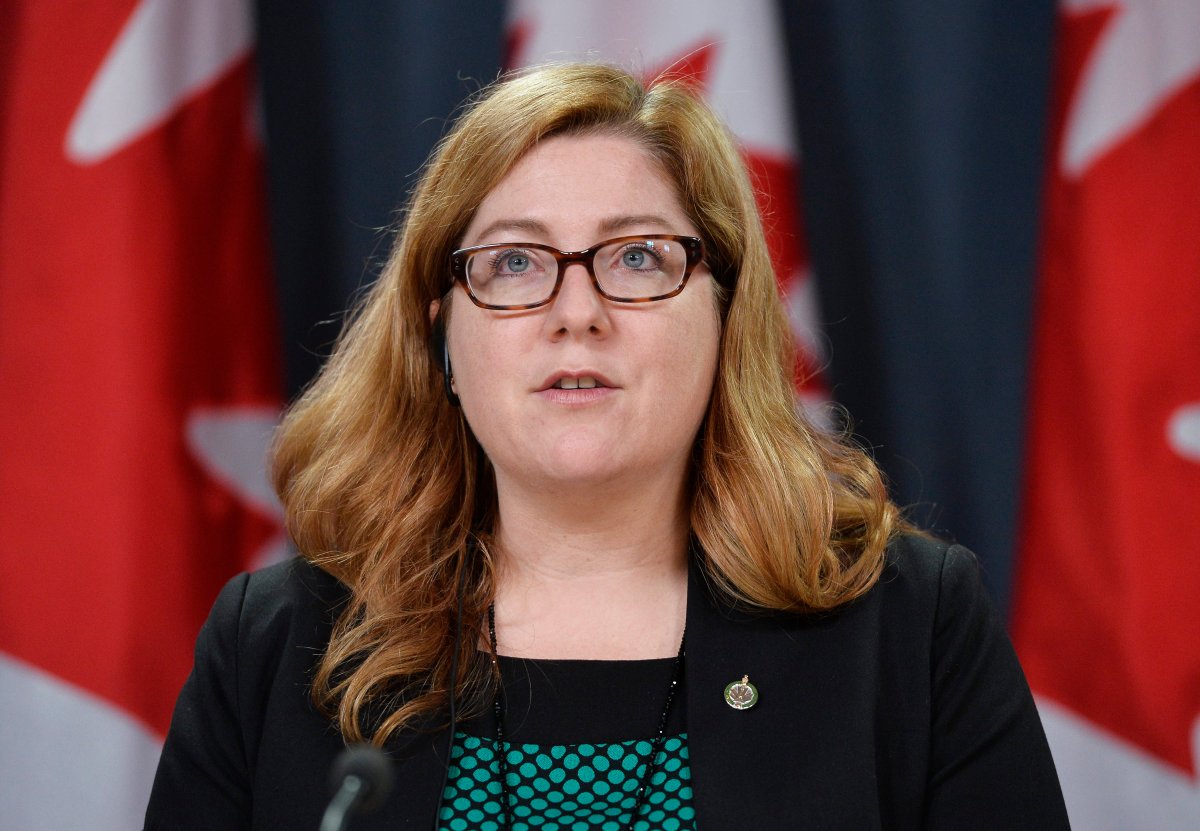Essex: it’s an Ontario riding with a population of just over 125,000 that sits right on Canada’s border with the United States.

And last weekend, it became a focal point in the struggles and confusion that followed a temporary U.S. travel ban on refugees and citizens from seven countries with Muslim-majority populations, Tracey Ramsey, the area’s NDP MP, said in the House of Commons on Tuesday.
READ MORE: Trump’s travel ban sparks protests, confusion for green card holders at U.S. airports
In an emergency Commons debate, MPs discussed the ban, as well as possible changes to the Safe Third Country agreement which allows refugees who arrive in Canada to make claims for protection in the U.S..
It also came amid an executive order by U.S. President Donald Trump that has torn families apart and prompted protests in cities and at airports.
Ramsey said her office has been “dealing with a large volume of calls, emails and messages from constituents” who travel back and forth across the border all the time.
“Many professionals in our region cross every day to work, to visit family, and they feel targeted and uncertain.”
“We have many Canadian families and permanent resident holders who were born in one of the seven banned countries,” she said.
Ramsey said she was up “very late” on Saturday night with her team trying to answer questions they didn’t have answers for because U.S. officials weren’t providing the Canadian side with “definite instructions.”

Get daily National news
“People are heading across that border, uncertain if they’ll be able to cross,” she said. “Nervous about whether they’ll be stopped, whether they’ll be questioned, what will be asked of them.
“This is not a situation, Mr. Speaker, that we can accept at our Canadian border or from one of our greatest allies.”
Ramsey noted that Canada has no written agreement with the U.S. on what the travel ban means for its northern neighbour, nor what countries the Trump administration plans to look at next.
“We have not sat down and had formal conversations that are necessary between the two countries, to ensure that when people want to cross those borders, they can do so confidently,” she said.
“Because I can tell you, Mr. Speaker, that’s not the case right now.”
On Tuesday, Paul Ryan, the Republican speaker of the U.S. House of Representatives, admitted that the rollout of the travel ban was “confusing” and “regrettable.”
WATCH: Theresa May says she was not given advance notice of Trump travel ban

But he also defended Trump’s executive order, saying a pause is necessary.
“We need to pause and make sure that the vetting standards are up to snuff so we can guarantee the safety and security of our country,” Ryan said.
“That is what this does.”
- Retired Quebec teacher buys winning lottery ticket at last minute, wins $40M
- N.B. election: Higgs went to ‘very dark place’ with Liberal joke, opponent says
- NDP want competition watchdog to probe potential rent-fixing by landlords
- Jasper mayor says CN Rail relocation will be devastating: ‘Deeply disappointed’














Comments